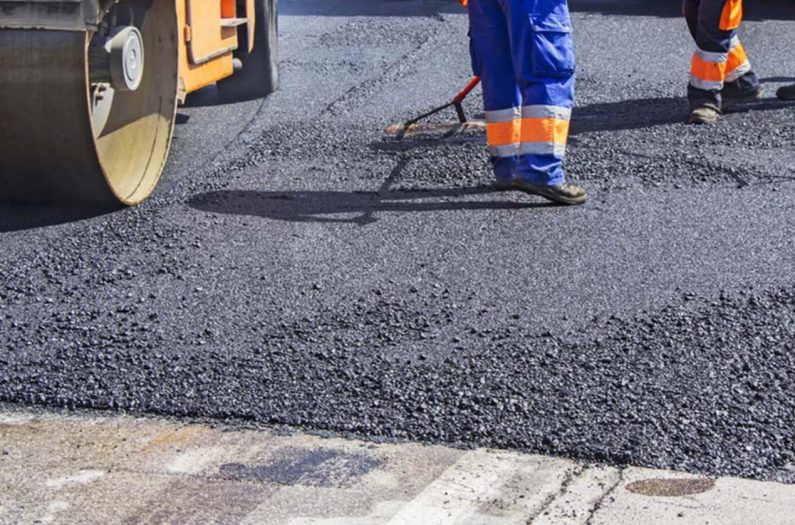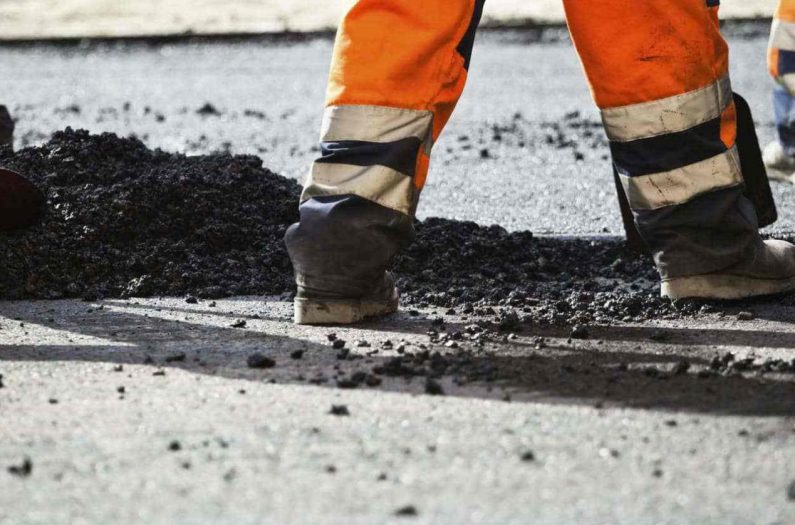Chipseal
All About Chipsealing

What Is The Average Lifespan Of A Chip Seal?
When it comes to asphalt resurfacing, as well as extending the pavement’s lifetime to ensure a save driving road, using a chip seal is one of the best options available out there. This process is considerably cheaper and more cost-effective than having to repave the entire driveway. While cheaper, chip sealing still gives that fresh new surface look, making new road lines, parking signs and markings easier to apply.
In average, a cheap seal lasts up to around 7 years, while there are other factors to consider such as the weather conditions, everyday traffic and the road’s maintenance at the same time. By making sure that you hire a reputable and experienced asphalt paving company, you’re guaranteed to have a chip seal that’s going to last longer.
There are various benefits associated with chip sealing, and common applications for this are often used on resurfacing public roadways, road repairs, resurfacing parking lots and other road pavements and surfaces. However, remember that the overall quality and longevity of the chip sealant mainly relies on how well-maintained it is, as well as how it has been installed. It is important that you’re familiar with the different types of materials used during the sealing process, alongside the entire application process. This way, it gives you the assurance that you’ve done everything on your part to make sure that your pavement is well protected for the next years to come. We’ll also talk about some of the tips from the pros on how you can keep concrete, asphalt and all paving materials properly maintained, regardless of its use, the weather, location, or other external factors.
Chip Sealing A Road: An Introduction
First and foremost, what does chip sealing mean and what makes it important? Chip sealing is the process where the contractors make use of the materials that are also being used in paving a fresh asphalt. However, instead of a freshly paved asphalt, they will install a chip seal and a blacktop with a process that’s slightly different from the typical pavement installation. It is important that you’re aware of what the process is to help you further decide whether this method is for you before you even tear your old pavement and install a new one.
For starters, fresh asphalt is a mixture of aggregates and liquid asphalt – both hot. The said mixture will then be spread into the aggregate base, which will then be pressed and compressed as a final process.
Chip sealing, on the other hand, while uses the same ingredients, the process involves a thin layer of liquid asphalt, which will then be sprayed to your already existing pavement. It won’t be spread on the aggregate base, and this is mainly the difference between the two methods discussed.
Once a thin layer has been spread, the aggregates, usually made up of either or a mixture of polished stone, grave, and polished grass will then be spread on top of the liquid asphalt. Once done, these will be compressed.
Loose aggregates or chips will then be removed as soon as the chip sealant has dried off. Compared to asphalt installation, this chip sealing process also offers a durable surface that can withstand even heavy traffic, with quality that’s comparable to fresh asphalt.
Is Chip Sealing Effective? What Are The Benefits?
There are numerous benefits of choosing chip sealant over asphalt installation. This process is also considered to be a great alternative if you’re working on larger roads to repair chips, potholes, cracks or other road damage.
- In general, chip sealing is only a fifth of a fraction in terms of the cost versus fresh asphalt installation or overlay.
- Chip sealants have the ability to seep in through damages such as pores, cracks, small potholes and other minor damages, allowing for a smooth road surface and a safer driving surface.
- Chip sealing can also fill gaps and other potholes which could prevent the absorption of water. If asphalt absorbs water, it could eventually lead to cracks and damage, which is something that you can prevent with chip sealants.
- Maintaining the road with a freshly laid out layer of chip sealant gives the road an added protection against harsh weather conditions and extreme sunlight. In return, the peeling, spalling and other road damage may be reduced.
- Fresh aggregates or chips also plays an essential role in creating a safer driving surface. It adds traction, which also means that traffic accidents are minimized.
- Fresh chips or aggregates also stop water seeping through and pooling into the asphalt’s surface, which then again, can help promote a safer driving experience.
- Just like a new asphalt installation, chip sealants can also provide a clean slate making it easier to draw markings and parking lines.
- Switch up your pavement’s looks with fresh aggregate! You may also choose from colored aggregate and other options to keep your driveway and/or parking lot good looking.
Your asphalt paving contractor can also back up the different benefits of using chip sealants on your driveways or roadways.
What Is The Longevity Of A Tar And Chip Driveway
Similar to a chip sealant, a chip driveway and tar may be installed by adding a hot layer of asphalt that’s sprayed on top of an aggregate, followed by another layer of fresh aggregate. Having a tar and chip driveway is considered to be more durable and stable as compared to gravel. This is mainly because the chips are secured and are not loose. The majority of homeowners these days find it more convenient and prefer having a tar and chip driveways, aside from the fact that they’re more attractive at the same time. The materials used for this process are also cheaper as compared to concrete or asphalt.
Unfortunately, if we are going to compare tar and chip driveway with a chip sealant, it won’t last as long as a freshly installed concrete or asphalt. There are other factors to consider, and the tar and chip driveway’s longevity may range anywhere between 7 and 10 years before you may need another layer of fresh aggregate.
Best Practices To Consider In Chip Sealing
Remember that the overall process of installing a tar and chip driveway and/or a chip sealant may have an effect on its durability, longevity and stability. Make sure that you leave this process to the professionals, although it may not hurt to understand what the best practices are. Being knowledgeable about it will help you understand the overall process so that you can best discuss this with a professional asphalt installation contractor.
- During the installation, the weather should be dry and warm, and it should be avoided during the rainy or cold season. When the weather is warm, the liquid asphalt will be properly sprayed and laid out, making the curing process faster and more effective.
- The surface that needs to be worked on requires a bit of preparation. It should be clean, swept clean, and any wild grass or other growing vegetation needs to be removed.
- Patching up the larger cracks, potholes and other damage needs to be done before applying chip sealant.
- Make sure that the chips to be used are fresh, and not rusty or dirty. You can ensure that your aggregates are fresh by buying a new one and make sure that you do an inspection before it is spread. Liquid asphalt doesn’t bind well with dirty chips, which means that your aggregate needs to be in good condition before you proceed with the chip seal installation.
- The aggregate has to be immediately spread to the hot liquid to make sure that it’s going to settle quickly and properly into the asphalt. If you are looking for an asphalt repair contractor or company, make sure that you check the number of people in their team and make sure that they have enough contractors to ensure that the entire process is done faster and flawlessly.
- Once it’s done, the contractor needs to make sure that the surface is swept properly to ensure that no loose chips are found in the surface. However, it is also important to make sure that they’ll use a soft broom as not to damage the freshly installed chip sealant and to avoid the chips being dislodged. Do not attempt to do this yourself – let the professional crews do this to make you sure that the sweeping process is taken care of and executed properly.
- With that being said, proper timing is important in sweeping a fresh sealant. If the chips haven’t been properly set, the entire project is as good as trash and it’s going to cost you more money. Again, leave it to the professionals.
Chip Sealant Proper Maintenance
As discussed above, your chip sealant and its longevity will also depend on numerous factors, including proper maintenance, and the overall installation process that has been done. Listed below are some chip sealant maintenance tips to make sure that your pavement is in good condition over the next coming years.
- Avoid using the driveway until the binder has been thoroughly set. Listen to your asphalt contractor as they will tell you how long you have to wait until it is safe to use the pavement or driveway. Make sure that you keep the area closed until the right time has come.
- As soon as your pavement is ready to withstand new vehicles parked and traffic, make sure that you avoid accelerating quickly or doing sudden breaks, especially if it’s a new chip sealant project. You have to practice better driving habits – not just for your safety, but also to ensure that no chips will be dislodged. This also means that there will be fewer cracks and damages for you to worry about.
- If you’ve noticed that there are small potholes, chips, or cracks, make sure that you repair them immediately. Don’t wait for those holes to get bigger. It’s going to cost you more money if you wait for those damages to get bigger.
- Wash your driveway, pavement, or parking lot washed yearly to avoid motor oil spilling onto the asphalt. These oils and other petroleum-based products can cause damage to your binders. Washing your driveway also prevents stains and helps your roads looking fresh and clean all year round.
If you have any questions, make sure that you ask your contractor. Listen to what they have to say and take note of other issues such as drainage issues and take care of it. Listen to their recommendations as they know what’s best.
Related Questions
Easy Tips On Maintaining A Chip Seal Driveway?
There’s little to no maintenance required, however, make sure that you don’t park large vehicles. Avoid sharp objects, and refrain from using a snow blower on the chips or aggregates.
What Is The Difference Between Chip Seal And Slurry Seal?
A chip seal is a combination of hot liquid asphalt, while a slurry seal is a mix of cold asphalt, aggregates, emulsion and water. Most often, the slurry seal is used on roads with high traffic, while the chip seal is preferred to be used on residential driveways, parking lots and roads with a low volume of traffic.
As always, let Asphalt Paving & Sealcoating Solutions know if you have any questions.






